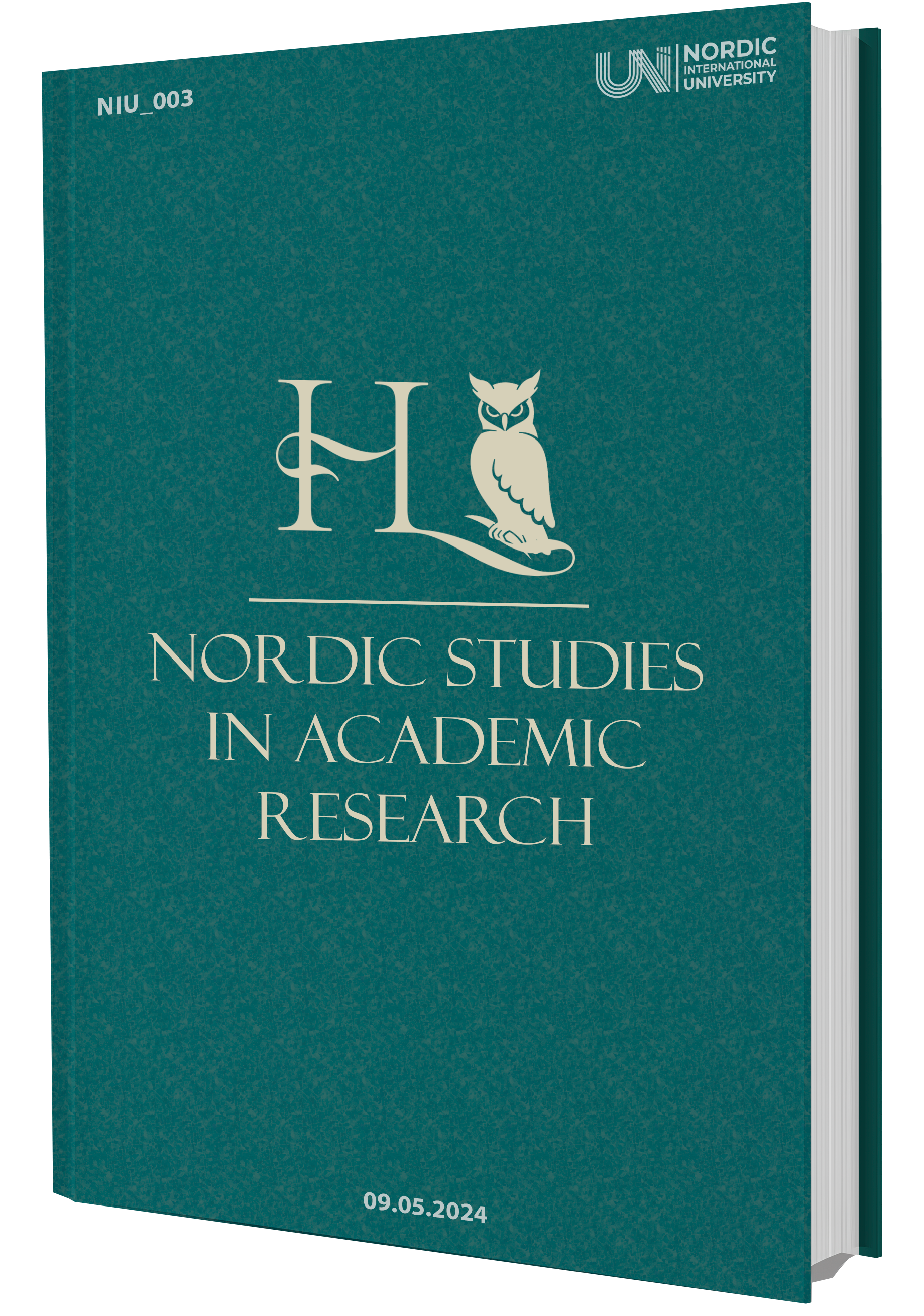The Evolution of the Education System among the Peoples of Central Asia: From Ancient Times to the Mid-19th Century.
Ключевые слова:
Development dynamics, Knowledge acquisitionАннотация
The evolution of the education system among the peoples of Central Asia has been shaped by
a rich history, influenced by various cultures, religions, and socio-political changes. From
ancient times to the mid-19th century, education was primarily focused on religious and
philosophical teachings, with an emphasis on Islamic knowledge after the arrival of Islam in
the region. Early education systems were based on oral traditions, and later on written texts,
particularly in the context of Islamic schools (madrasas) that flourished during the medieval
period.
In the early centuries, the education system was focused on literacy, religious teachings, and
moral principles. With the spread of Islam, madrasas became the main centers for both secular
and religious education, where subjects like logic, grammar, philosophy, medicine, and
astronomy were taught.
By the mid-19th century, education in Central Asia had declined due to political fragmentation
and wars, as well as stagnation in scientific and cultural advancements. However, in the
second half of the century, new educational reforms began to emerge, driven by the influence
of the Russian Empire and a local desire for national identity and independence. This led to
the rise of the "Jadid" movement, aimed at modernizing the education system to meet the
changing needs of society and stimulate both scientific and cultural growth.
The evolution of education in Central Asia reflects the complex interplay of indigenous
traditions, religious influence, and external forces that shaped the region's educational
landscape over the centuries.
Библиографические ссылки
Yuldashev, T. K., Qodirov, N. N., Eshov, M. P., & Abdurakhmanova, G. K. (2023, March). Optimal Control Problems for the Whitham Type Nonlinear Differential Equations with Impulse Effects. In IUTAM Symposium on Optimal Guidance and Control for Autonomous Systems (pp. 205-217). Cham: Springer Nature Switzerland.
Қодиров, Н. (2023). ИНТЕРНЕТ ВА ОММАВИЙ АХБОРОТ КОММУНИКАЦИЯЛАРИНИНГ ЁШЛАРНИНГ ИСЛОҲОТЛАРДАГИ ФАОЛЛИГИГА ОБЪЕКТИВ ТАЪСИРИ. “YANGI O ‘ZBEKISTON TARAQQIYOT STRATEGIYASIDA FAN VA TA’LIM INTEGRATSIYASI MASALALARI” mavzusidagi Respublika ilmiy–amaliy anjumani MAQOLALAR TO'PLAMI, 193-198.
Эшов, М. П., Кодиров, Н. Н., & Юлдашев, Т. К. (2023). Задачи оптимизации в обыкновенных автономных системах первого порядка. Итоги науки и техники. Современная математика и ее приложения. Тематические обзоры, 227(0), 92-99.
Qodirov, N. (2024). Сиёсий партиялар “Ёшлар қанотлари” нинг ёшлар ижтимоий фаоллигини оширишдаги иштироки. Nordic_Press, 3(0003).
Qodirov, N. (2024). ЎЗБЕКИСТОНДА ЁШЛАР ИЖТИМОИЙ ФАОЛЛИГИНИ ОШИРИШДА ФУҚАРОЛИК ЖАМИЯТИ ИНСТИТУТЛАРИНИНГ ИШТИРОКИ. Nordic_Press, 3(0003).
Qodirov, N. (2024). ZАMONАVIY OMMАVIY АXBOROT VOSITАLАRINI YOSHLАR IJTIMOIY FАOLLIGIGА TА’SIRI (OʼZBEKISTON MISOLIDА)(4-sho'ba). Nordic_Press, 4(0004).
Qodirov, N. (2024). Янги Ўзбекистоннинг ижтимоий-иқтисодий ва сиёсий ривожланишида ёшларнинг фаол иштироки. Nordic_Press, 3(0003).
Qodirov, N. (2024). XIX аср ўрталарида Ўрта Осиё анъанавий таълим тизими ҳолати. Nordic_Press, 2(0002).
Qodirov, N. (2024). Туркистон ўлкасидаги рус таълим муассасалари тарихи. Nordic_Press, 2(0002).
Qodirov, N. (2024). Мустамлакачилик даврида Туркистонда таълим тизими ривожи хусусиятлари (XIX аср ўрталари–XX аср бошлари). Nordic_Press, 2(0002).
Qodirov, N. (2024). Россия империясининг Туркистондаги анъанавий таълим тизимига муносабати. Nordic_Press, 2(0002).
QODIROV, N. (2024). SIYOSIY PARTIYALAR “YOSHLAR QANOTLARI” NING YOSHLAR IJTIMOIY FAOLLIGIGA TA’SIRI. News of UzMU journal, 1(1.4. 1), 20-24.
Baxtiyorjon o’g’li, Y. B. (2024). MАKTАB TАSHKILОTLАRINI BОSHQАRISHDА DIREKTОR О’RINBОSАRLАRNING KАSBIY MА’NАVIYАTINI YUKSALTIRISH. SO ‘NGI ILMIY TADQIQOTLAR NAZARIYASI, 7(6), 121-126.
Загрузки
Опубликован
Выпуск
Раздел
Лицензия
Copyright (c) 2025 Najmiddin Qodirov

Это произведение доступно по лицензии Creative Commons «Attribution-NonCommercial» («Атрибуция — Некоммерческое использование») 4.0 Всемирная.
Условия лицензии
Эта работа доступна под лицензией Creative Commons Attribution-NonCommercial 4.0 International License. Чтобы просмотреть копию этой лицензии, посетите http://creativecommons.org/licenses/by-nc/4.0/ или отправьте письмо по адресу Creative Commons, PO Box 1866, Mountain View, CA 94042, США.
По этой лицензии вы можете:
Поделиться — копируйте и распространяйте материал на любом носителе и в любом формате.
Адаптируйте — делайте ремиксы, трансформируйте и дорабатывайте материал.
Лицензиар не может отозвать эти свободы, если вы соблюдаете условия лицензии. На следующих условиях:
Атрибуция. Вы должны указать соответствующую ссылку, предоставить ссылку на лицензию и указать, были ли внесены изменения. Вы можете сделать это любым разумным способом, но не таким образом, который бы предполагал, что лицензиар одобряет вас или ваше использование.
Некоммерческое использование — вы не имеете права использовать материал в коммерческих целях.
Никаких дополнительных ограничений. Вы не имеете права применять юридические условия или технологические меры, которые юридически запрещают другим делать все, что разрешено лицензией.





